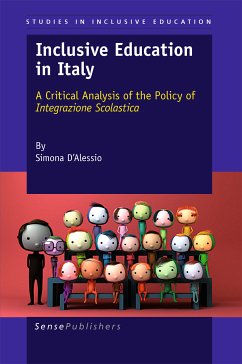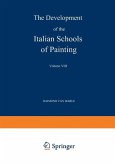This book provides an innovative and thought-provoking analysis of the policy of integrazione scolastica from an inclusive perspective. Drawing on historical and empirical research methods the book arises out of an ethnographic study, which investigates the extent to which the policy of integrazione scolastica can be considered an inclusive policy. The author poses two fundamental questions: why are there episodes of micro-exclusion and discrimination against disabled pupils still taking place in regular schools after more than 30 years have passed since the enactment of such a progressive policy? Can the policy of integration lead to the development of inclusion in Italy? The research findings presented in the book indicate that exclusion and discrimination towards disabled pupils in education do not result from a lack of implementation of the policy at a school level, rather from the perpetuation of dominant discourses, which construct disability as an individual deficit. The book does not deny the progress made in the country following the application of this anti-discriminatory policy; rather it challenges the hegemonic abilist culture and the traditional perspectives of disability and schooling that undermine the development of inclusive education. After having investigated the theoretical premises of the policy of integration, the author argues that this progressive policy is still rooted in a special needs education paradigm and that what was once a liberating policy has been transformed into a hegemonic tool which still manages, controls and normalizes disability leaving school settings and teaching and learning routines unchanged. She finally argues for a human rights approach for the development of an inclusive school for the 21st century. The book is an essential reading for academics, policy makers, researchers and students involved in education as it links ideological pressures to practical analyses.
Dieser Download kann aus rechtlichen Gründen nur mit Rechnungsadresse in A, B, BG, CY, CZ, D, DK, EW, E, FIN, F, GR, HR, H, IRL, I, LT, L, LR, M, NL, PL, P, R, S, SLO, SK ausgeliefert werden.









